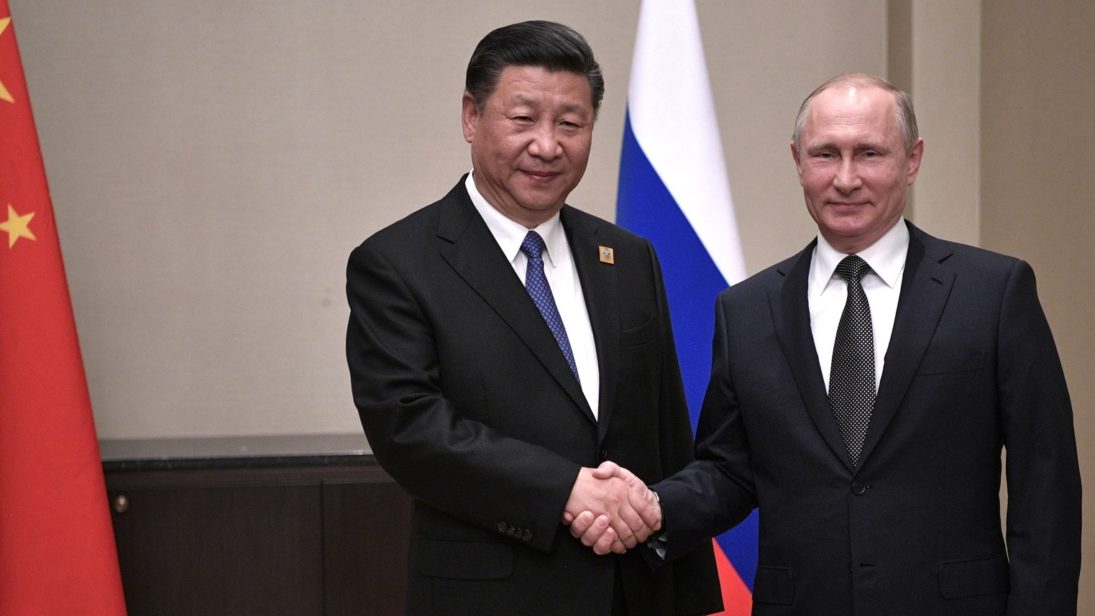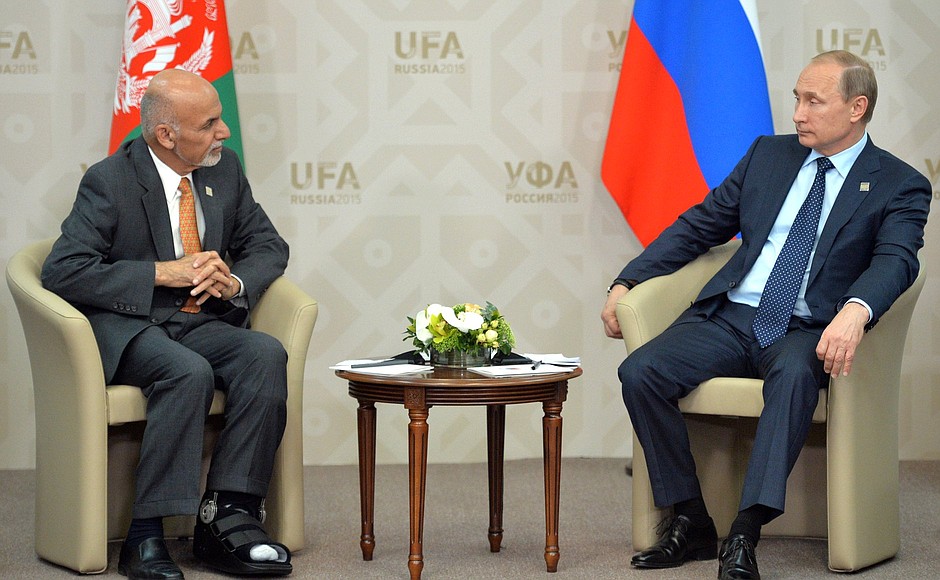
Though much of the discourse on the continuing violence in Afghanistan is focused on the United States’ approach to Pakistan and the Taliban, there is more to the Afghan conundrum than the clash between the United States and its primary adversary. One of the most glaring factors that could impede the resolution of the conflict in the future is the intensification of interstate rivalries within the Afghan context. In this regard, the expanding involvement of Russia and China in Afghanistan’s peace processes as well as its strategic and economic affairs are important dynamics worthy of further analysis. With the United States’ relations with Russia at one of its lowest points in years and United States’ National Security and Defense Strategies terming strategic competition with China a major threat, Moscow and Beijing’s growing footprints in Afghanistan have the potential to transform the country into an active theater for strategic competition. This reality further diminishes the already-bleak prospects for achieving a regional consensus on the future of the country.
China’s Economic Footprint and the Pakistan Factor
Though China’s emergence as a regional stakeholder in Afghanistan may seem innocuous, two factors have the potential to stir up conflict between Washington and Beijing: first, China deepening its involvement in the Afghan peace process while maintaining its wholehearted support for Pakistan, its longstanding ally, is bound to displease the White House. As Washington berated Pakistan for its alleged support of terrorism in Afghanistan following the announcement of the Trump administration’s South Asia strategy in August 2017, Beijing issued laudatory statements praising Pakistan’s efforts in eliminating the scourge of terrorism. This reaction compelled many analysts to postulate that President Trump’s policy announcement jeopardized America’s leverage over Islamabad and pushed Pakistan further into China’s sphere of influence. Such claims demonstrate the sense of zero-sum competition between the United States and China that already defines the South Asian geopolitical arena, mistrust that is bound to be amplified in Afghanistan due to the United States’ clear misgivings over Pakistan’s alleged support for the Taliban and the Haqqani Network. Since 2014, China has ramped up its involvement in Afghan peace initiatives via multilateral mechanisms like the Quadrilateral Coordination Group (QCG) as well as back channel talks with the Taliban (for instance, in an interaction notably held in Islamabad earlier this year). However, U.S. suspicions over the Pakistan factor signals that the United States is likely to play spoiler to any Chinese efforts to push forward a peace process with the Taliban. Meanwhile, future U.S.-China coordination towards a regional consensus is unlikely to exist without a dramatic shift in the geopolitical calculus.
Second, China’s efforts at expanding its economic footprint in Afghanistan might provoke the United States’ suspicions of Beijing as well. It is no secret that China has vigorously pushed forward the China-Pakistan Economic Corridor (CPEC) as a flagship project of its Belt and Road Initiative (BRI), and has expressed its interest in incorporating Afghanistan into these initiatives. To this end, China mediated a trilateral meeting between top diplomats from Afghanistan, Pakistan, and China last December to resolve differences between Kabul and Islamabad while also seeking to incorporate Afghanistan into CPEC. Yet, China’s economic ascendence in South Asia and beyond has been discomforting for the United States; the U.S. National Defense Strategy 2018 (NDS), while declaring strategic competition from China a major threat, stated Washington’s concern regarding China’s “predatory economics” as a tool “to intimidate its neighbors.” Last year, U.S. Secretary of Defense Jim Mattis communicated his objections over China’s BRI (also known as the “One Belt, One Road” initiative) to the Senate Armed Services Committee when he stated, “In a globalized world, there are many belts and many roads and no one nation should put itself in the position of dictating one belt, one road.” With President Ghani expressing interest in joining BRI, the impending expansion of China’s “predatory economics”—as seen by America—into Afghanistan could become an avenue towards a strategic clash between Washington and Beijing even in a post-conflict Afghanistan.

A Resurgent Russia and the Taliban Factor
Under the auspices of Russia’s Foreign Policy Concept, instability in Afghanistan is a major security threat. Thus, Moscow has been at the forefront of efforts to convince key stakeholders of the need for negotiations with the Taliban. However, while Pakistan, China, Iran, and India partook in the Moscow Process, the United States has remained skeptical of a widening role for Russia in Afghan affairs.
This is not without reason: Russia’s stance towards the Taliban is perplexing, as Moscow continues to label the group a terror organization while maintaining diplomatic links with its members. The United States has repeatedly claimed that Russia is arming the Taliban, with the latest reference coming from U.S. Gen. John Nicholson, the commander of U.S. forces in Afghanistan. In response, Russia has accused the United States of supporting the Islamic State-Khorasan Province (ISKP) in Afghanistan. Whether it is truly arming the Taliban or not, these back-and-forth allegations exacerbate the already-gaping trust deficit between the Washington and Moscow both within and outside of Afghanistan. Indeed, Russia’s alleged bonhomie with the Taliban, combined with its poor overall relations with Washington after both sides recently expelled a host of diplomats following the poisoning of a former Russian spy in the United Kingdom, has already been detrimental to stability, as a regional consensus involving both Moscow and Washington is certainly out of reach.
While U.S.-Russia relations have been strained for some time, Moscow’s deepening relationship with the Taliban is the more compelling reason why a competitive atmosphere in Afghanistan is destabilizing. Mistrust over Moscow’s inability or unwillingness to distance itself from the Taliban means that a joint U.S.-Russian effort against the Islamic State is likely impossible, though the Khorasan wing is apparently rebounding from its losses in Syria and Iraq and the United States and Russia appear to be in agreement on their opposition to the group. While it doesn’t appear this is the case just yet, the worst-case military scenario for the United States would entail Russia emerging in complete strategic alignment with the Taliban, a situation that could then escalate into a full-blown proxy conflict between the Washington and Moscow. Such an outcome would almost certainly prolong the conflict in the Afghanistan.
Conclusion
The intensification of interstate rivalries has been problematic for Afghanistan at least since the 1979 Soviet invasion of Afghanistan that commenced a United States-Soviet Union proxy war in the country. A regional approach that is already marred by India-Pakistan rivalry, ongoing Afghanistan-Pakistan disputes, and United States-Pakistan mistrust will be further inhibited by nascent and rapidly-developing apprehensions about Moscow and Beijing’s motives for involvement. As China’s partnership with Pakistan and economic push in Afghanistan will likely bring Beijing into competition with the United States within multilateral fora, Russia’s renewed interests in Afghan affairs through its reliance on and support for the Taliban may turn Kabul into a battleground for Moscow and Washington once again.
These power politics reduce the already-slim chances of reaching a regional consensus on the Afghan situation. Rather than competing, the United States, China, and Russia, as well as other regional stakeholders, would do better to support each other’s initiatives for peace in Afghanistan, setting aside their own tense bilateral relations and arriving at a mutually agreed upon way forward.
***
Image 1: President of Russia (cropped)
Image 2: President of Russia


